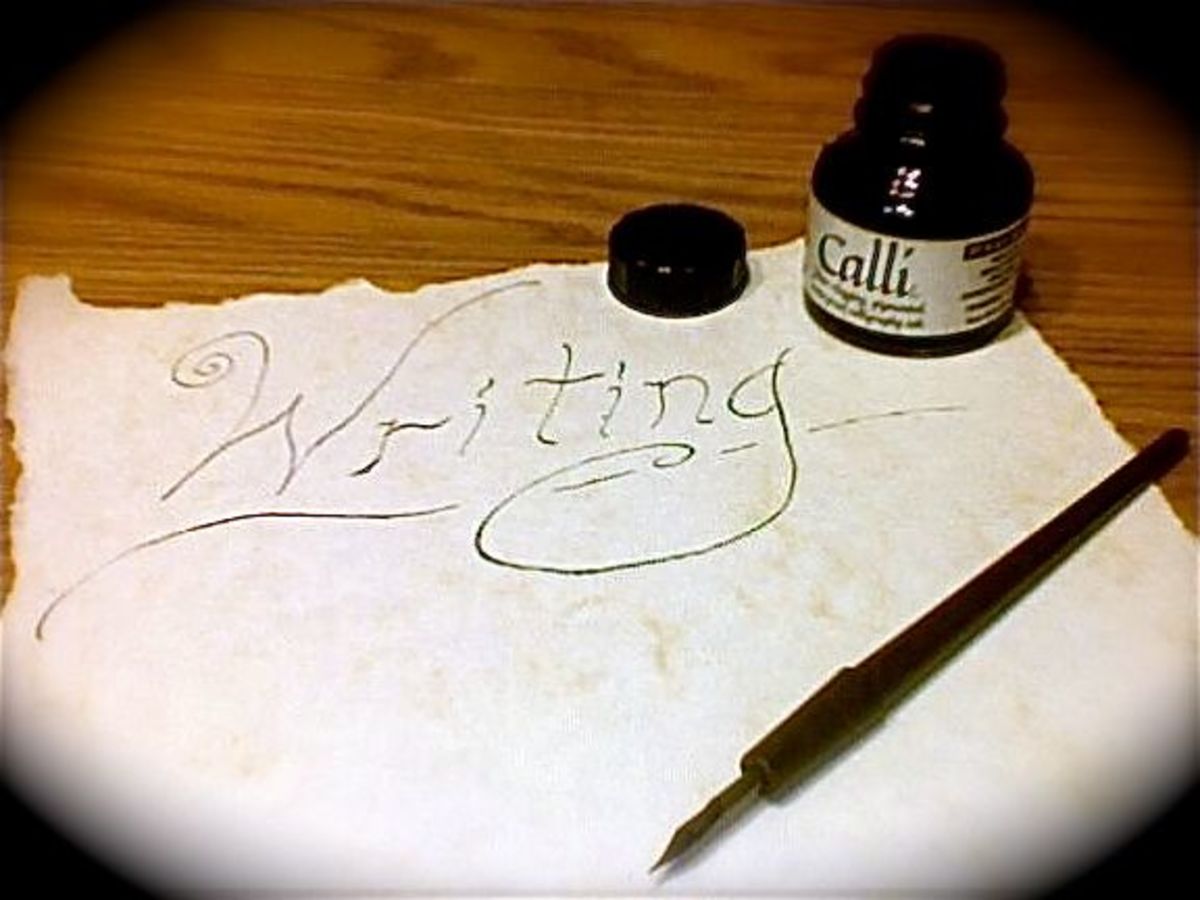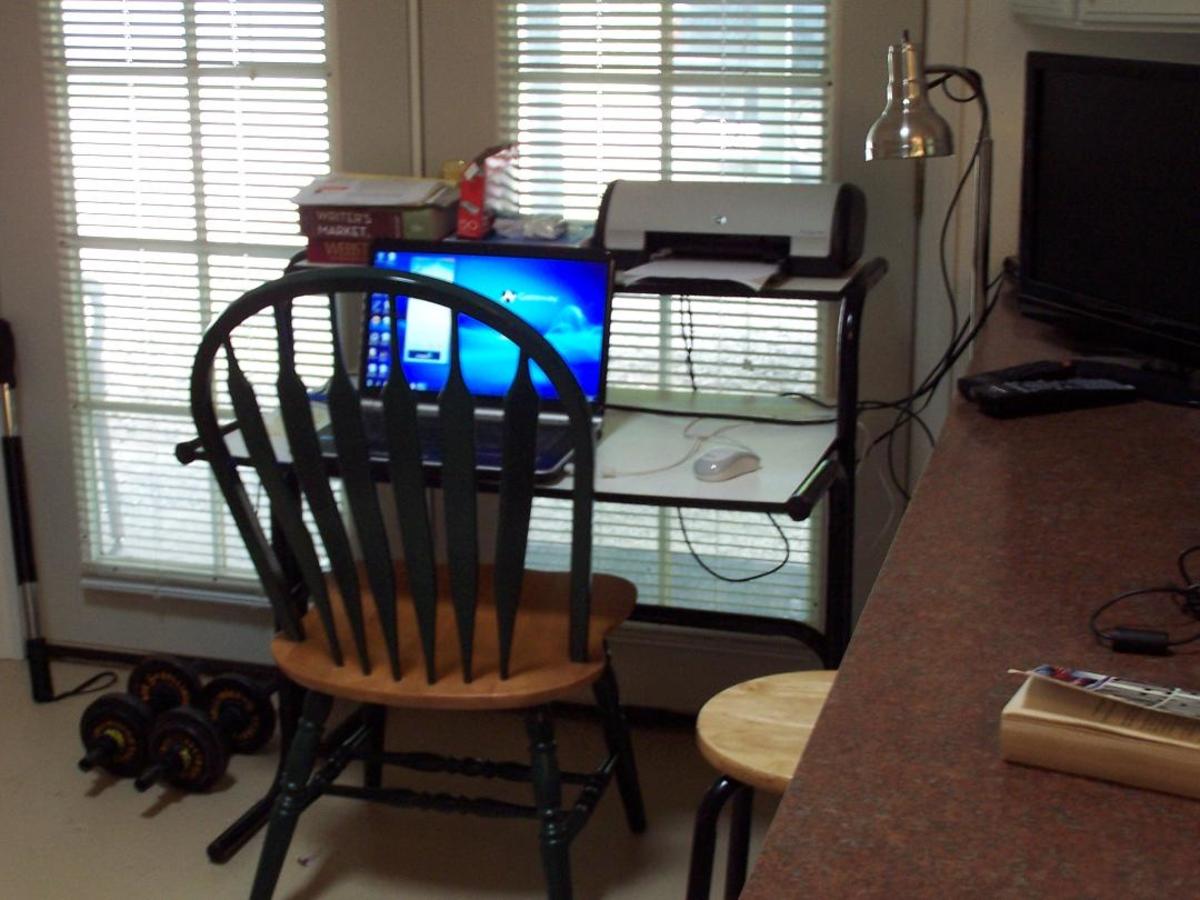3 Tips to Help You Become a Successful Writer


What does 'Success' mean to you?
The word success is defined by Webster's dictionary as: a favorable or desired outcome.
Every writer, every person for that matter, has there own desired outcome. While some may want fame and fortune, others may merely want to share their work with an audience. Some writers want to complete a novel while others are looking to make it in the online writing world. No matter what your ultimate goal, there are a few tips that can help you achieve that success you crave.
*NoteThe tips listed here are just that, tips. They aren't required but they sure do help!
Online Support for Writers
HubPages A fantastic online writing community where writers can find help, support and instruction and make money while doing it!
Writer's cafe "an online writing community where writers can post their work, get reviews, befriend other writers, and much more.."
Writing.com "an extremely creative environment for authors, offering hundreds of unique writing tools and opportunities for creation and inspiration."
Tip #1: Support
Every writer needs support. We need at least person that we can discuss our projects, or just our craft, with. We need someone who will hold us accountable and will keep us motivated and sometimes, we just need someone to tell us we're doing a good job.
This person can come in the form of a relative, a friend, a spouse, a fellow writer, whoever it may be for you. It can even be several people. A writing group, for example can be a wonderful resource.
A support system is necessary for everyone in life. Not just with writing, but in all that we do. We need cheerleaders to pump us up and truth speakers when we need a reality check. Having someone in your corner to remind you what it is you are working towards and to help you keep your eyes on that goal can make a world of difference.
"In order to excel, you must be completely dedicated to your chosen sport. You must also be prepared to work hard and be willing to accept constructive criticism. Without one-hundred percent dedication, you won't be able to do this." -Willie Mays

The Negatives of Positivity
Can a positive voice be dangerous to a writer?
Well...yes and no. We all need a positive reaction to our work (refer to the support section above) but hearing only positive remarks all the time can be misleading. In order to become better at what we do, we need to hear the positives as well as the negatives. Just as we can't fix a problem we don't know is there, we can't grow if we don't know where we need to improve.
Too much pro is just as bad as too much con. Being told over and over that we aren't good at something and don't receive any encouragement, it can lead us to doubt ourselves, to see only the bad in everything we do and miss those things that were good or even great. The same goes for positives. If we are constantly being told how wonderful we are at something and are never given any suggestions for improving, we may come to think we don't need improvement and that can cause us to plateau and never grow to our full potential.
Tip #2: Constructive Criticism
I know, the word 'criticism,' has you wincing right now doesn't it? Well, fear not. It isn't that bad. Okay, okay, sometimes it is that bad but that's why I said constructive criticism. That is an entirely different animal...
One definition of criticism reads: the art of evaluating or analyzing works of art or literature.
That's right-the art. Because it really is an art. Someone who is good at giving critique or criticism, can do so in a way that leaves those being critiqued feeling aided but not wounded. They can address a writer's trouble spots or issues within the work and give examples of how to resolve them. And this is where the constructive part is important. Criticizing for the sake of being critical isn't much help. But, doing so constructively, can aid the author as well as the piece.
Being told simply, "Your title is dumb" or "I don't like your main character," "I don't like your style," doesn't much help you as the author.
But having someone who will tell you things like, "Your title could use some tweaking. Maybe there's another word you could use in place of...." or "I thought the main character could use some more depth. I had a hard time connecting with her." is far more beneficial, even if you don't always like or agree with what they say.
There's no rule that says you must make every change someone suggests to you. But having a person (or a few people) who will give you honest and reliable feedback can help you see issues you didn't even realize were there, as well as help you to feel better about a part you may have been unsure of.
The truth is, no matter how fantastic of a writer you are, there will always be someone out there with an opinion on it. We can choose to ignore the comments or take them at face value, to use some suggestions and throw others out. I've said it before and I'll say it again, it's your piece and you, ultimately, have to be happy with it!
Style:
a convention with respect to spelling, punctuation, capitalization, and typographic arrangement and display followed in writing or printing.


* Note *
Keep in mind, that while things like grammar and spelling are important from an aesthetic sense, they are not what will make or break your novel. A unique and interesting story is what will get your work sold and/or read. While attention to style will undoubtedly help you along the way, it is nothing to obsess over. As the saying goes- "Some rules are meant to be broken."
Tip #3: Knowledge of the Technical Aspects of Writing
This is the part of writing that may seem boring and unimportant to some.
Why do I need to know and understand the mechanics of writing? Isn't that what editors are for?
Far too often, the talent and zeal of a would-be author are overshadowed by their lack of style. Style, in this case, means the knowledge and use of correct mechanics such as grammar and sentence structure. A poorly written essay, book, short story or poem can detract from the actual substance of the work. Typos and misspellings may seem minuscule but they can jump out like red flags to some readers. Any sort of distraction to readers is unwanted when it comes to your writing.
On the other side of the coin, while poor style can be a nuisance to readers, the same can be said when style is held in too high of importance; rewording and reworking line after line to be certain each and every rule is followed. Overdoing it can cause the pathos, or emotion, of your piece to be lost.
The happy medium, is knowing where to draw the line and what rules can and can't be broken. The easiest way to learn this is to read. A lot. Read books or plays or essays or whatever it is that you are writing to learn what is acceptable and what works. You can also find books on style, as well, that can explain the different types of style expected in the different fields. Understand, however that these rules don't always work from piece to piece. A term paper, for instance, will need to adhere to a few different rules than a novel or play.
*Note: While authors submitting work to publishers, agents and some magazines or newspapers need to understand and follow the rules of grammar spelling, etc., this section is more intended for those whose writing will be viewed by the public without the use of a professional editor or copywriter. Self publishers or online article writers, for example, are the ones responsible for the editing on their work when it is published. And these instances are where mechanics issues can be a problem for the reader. You don't want readers leaving your article after the first few sentences or leaving bad reviews on your book because your style or spelling turned them off to the whole piece!
Question:
Which tip do you think will help you the most?
Remember...
Once again, these are just a few tips, not the rule. They are things that I have found over the years to help on the road to becoming a better writer.
There are plenty more tips and tricks that others use (like writing something everyday or getting in a specific word count each morning) and if you have one to share, I'd love to hear it! Let me know what you do to improve your writing or whether any of these tips have worked for you in the section below. I look forward to hearing from you and Happy Writing!
Other Hubs in This Series:
- How to Submit a Manuscript - the Step by Step of Creating a Query Letter
What does a manuscript need to be taken seriously by potential publishers? How do you submit your work to a publisher or literary agent? This hub will answer your questions. - Submitting Your Manuscript Q&A
A short how-to guide to submitting a manuscript to a publisher or an agent. Answers to a few commonly asked questions about traditional publishing.








